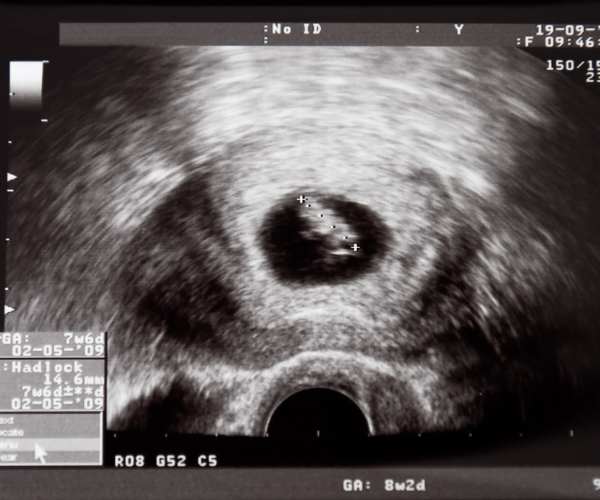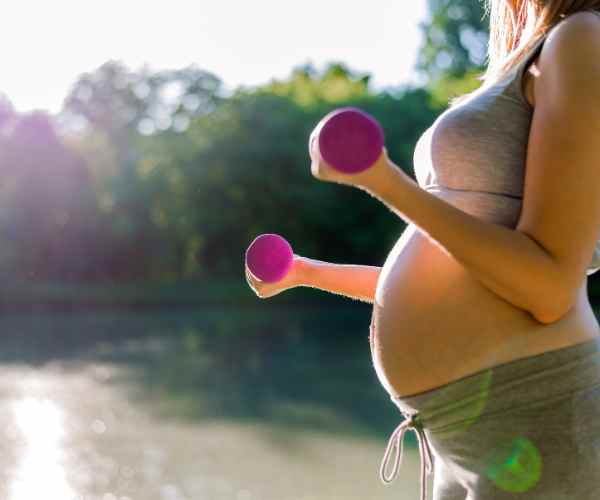Pregnancy is a period of intense transformation, development and hope. Throughout this phase, making sure that your body is fed with the appropriate vitamins and supplemental nourishment is critical for the mother’s health as well as the baby’s health. This is because the right nutrients support the proper development of various parts of a fetus, from the fetal brain to skeletal bones, while allowing the mother to stay energized and emotionally stable.
In this section, we will outline the key vitamins and supplements that you have to focus on while pregnant. By the end of this guide, you will be aware of more than simply what your body requires and why it is essential. We will get into specifics such as which nutrients are important, their respective roles, and how they assist both mothers and babies. We’ll also examine how these nutrients increase not only physical health, but also mental and emotional health.

Significance of Nutrition Before Birth:
The role of nutrition during pregnancy includes more than just feeding for two but giving the proper nutrients your body needs throughout that period. Nutrition also enables fetal growth, helps in boosting the immune system during pregnancy and at the same time helps in emotional stability which as well is essential during pregnancy. This type of nutrients referred to as pre-natal nutrients are a contribution to the pregnant women and as well the child. Nutrition times includes the use of vitamins and supplements that are enormously filling macro-deficiencies and helping out with emotional balance.
Vitamins that can be essential in Pregnancy: What Do You Require And For What Reason
Why it’s important early on:
One of the most obligate pregnancy vitamins is folic acid which belongs to the vitamin B group. It is suggested to start use complex vitamin folic before conceiving and during the first trimester as well. In the early stages of pregnancy, the infant’s neural tube which is responsible for spinal cords and brains tends to grow quicker than other organs. To increase the chances of correct neural tube Close structure formation, B69 (folic Acid) is important. Further research shows that taking this sample of the B-vitamin complex during the early stages increases the chances of good fetal development by about 70%.
Role in preventing neural tube defects:
Neural tube defects are said to be critical birth deformities which relate to the brain or the spine. The chances of the deformities occurring increases during the first few weeks of the pregnancy. Folic Acid is said to assist in the closure of the neural tube and as such help mitigate the chances of brain and spine deformities. Women who intake folic acid before and during their early pregnancies have a decreased risk of acquiring these life impacting conditions. The CDC indicates women who take folic acid in prematernity and past the first trimester can avoid 50-70% of neural tube deficiencies.
Recommended dosage and timing:
In order to avoid birth defects, it is advisable to start taking prenatal vitamins with B-complex vitamin folic acid, starting at least a month before conceiving. During conception and the first 12 weeks, a daily intake of 400 to 800 micrograms (mcg) per day is encouraged. If you are at risk of birth related defects, you may be suggested otherwise by a doctor. To avoid complications, always ask your doctor or a health care professional prior to taking a new set of drugs to avoid complications.
Iron: Vital Nutrition for the Development of an Infant and a Mother
How it maintains an appropriate circulation of the blood:
During pregnancy, a woman’s iron requirements increase because it is needed to assist blood volume expansion. Oxygen delivery in the entire body is very important in pregnancy, and iron aids in producing hemoglobin, the protein responsible for transporting oxygen. Iron is essential in enabling the placenta to allow the transfer of oxygen and nutrients to the fetus, therefore enhancing normal development of the fetus.
How It Helps to Prevent Anemia:
Pregnant women are at a higher risk of iron deficiency anemia which is associated with fatigue, weakness, and inability to concentrate. Anemia is prevalent when the body is having insufficient red blood cells to transport oxygen in tissue, compromising both the mothers and the infant’s growth. The American College of Obstetricians and Gynecologists recommends 27 mg of iron supplements to pregnant women to prevent Anemia.
Possible symptoms of not having enough iron are:
An iron deficiency can present many symptoms including cold hands and feet, pale skin, light-headedness, a shortness of breath, or fatigue. If you encounter these signs then have a discussion with your doctor regarding getting your iron levels checked. Iron deficiency can be addressed in most of the cases but before that a blood test needs to confirm the deficiency. These problems can usually be solved with iron supplementation.
Vitamin D: A great source for improving bones and the immune system.
How calcium is absorbed by the help of vitamin D:
Vitamin D is required to optimize calcium, which is needed in order to allow the child’s teething and bone structure to form conveniently. Without having enough vitamin D, it will significantly complicate time for the pregnant mother as they will end up having calcium absorption problems along with their child. Your body needs calcium at higher levels during times of pregnancy and the process of vitamin D is necessary to help in this process from the intestines to the bloodstream.
Moreover its function is to increase immune system function:
Another great feature of Vitamin D is that it also helps in boosting the immune system along with bone health. Women who are pregnant and have a low level of vitamin D are likely to suffer complications during pregnancy most notably it will increase the chances of gestational diabetes and preeclampsia. Having a good amount of vitamin D can greatly help decrease the chances of these issues allowing the immune system to be more sustainable throughout the time of pregnancy.
Vitamin D can be obtained from the sun, fatty fish, and fortified food products including breakfast cereal and milk. However, if you don’t get much sunlight in the winter months, it can be excessive and difficult to acquire sufficient amounts from food alone. If you are pregnant, it is advisable to supplement with 600 IU or International Units of vitamin D but talk to your doctor if you think you need more than that. A higher dosage may also be given under certain circumstances.
Calcium: Essential to Growth and National Development
The baby grows as calcium stores in the mothers womb but oversupply can be problematic for both the mother and child.
Calcium is found to be the most common factor across the world for building bones, teeth and effector muscles. However, insufficient calcium tends to have adverse effects, as it leads to an increased risk of osteoporosis later in life as the baby now depends on the mother bones.
A calcium deficiency in a developed skeletal system always leads to chronic bone diseases as the body excess in demand across many segments. A recommended daily intake of calcium is a must as it has proven to maintain nerve and muscle function. Overcoming muscle cramps during pregnancy should not be a sign for worry, once the child is born, it is expected that a gentleman’s length will turn into above average, however, during confinement consuming adequate amount aids greatly to get through pregnancy fatigue.
Calcium requirements for adult intake:
As mentioned previously one can meet calcium requirements through bone-building calcium sources and poultry but over intake is not desirable since it can lead to kidney stones or lead to poor absorption of other important minerals such as iron. Therefore having supplements should only be done if needed. Taking protein shakes and calcium is helpful but making sure to intake dairy, green foliage and fortified cereals which are good for calcium absorption.
Omega 3 Fats For Brain and Eye Development
Importance for fetal brain and eye development:
Particularly docosahexaenoic acid, which focuses on Omega 3 the most, is one of the acids that greatly aid the development of fetal brain and eyes. A good example of other amino compounds is DHA; it is critical for one’s brain and hands structure as well as function in the entire body, including several muscular systems and organs. Controlled studies have illustrated that if an expecting woman eats diet rich in omega-3 compounds her baby will have improved brain function, good eyesight and reduced chances of developmental disorders.
The best sources of omega-3s to get during pregnancy:
Oily fishes such as salmon, sardines and mackerel are the richest source of omega-3s. But some fishes like swordfish or king mackerel which have high mercury content ought to be avoided in pregnancy due to the negative impact of mercury on the developing baby. If fish is not a staple of your diet, omega-3 fish oil or algae oil supplements would ensure that your requirements are fully met.
When supplementation is required:
Most women are unable to obtain sufficient omega-3s from their diet alone, which might be the case especially when they have a low intake of fish. To ensure that you are getting adequate omega-3s which are vital for the proper growth and development of your baby prenatal omega-3 fish oil supplements are one of the best options. For women who are pregnant, a common suggestion is to take around 200 to 300 mg of DHA every day, with the condition to run it by your physician first before taking it.
Iodine: Strengthening Cognitive Abilities and Thyroid Functions
The importance of iodine in prenatal brain development:
To maintain the normal activity of the thyroid (and regulatory processes like metabolism), sufficient iodine levels within the organism are necessary. More importantly, however, an appropriate level of iodine assists in the unborn’s formation of the brain during pregnancy. This makes sure the child has a well-developed brain and minimizes the risk of cognitive problems in the child after delivery. It has also been shown that low iodine levels during pregnancy have increased the chances of the child suffering from low IQ levels, hearing loss and lacuna in their ability to verbalise.
Potential effects of iodine deficiencies during a pregnancy:
Iodine deficiency is a worldwide concern and, especially expectant ladies are at its greater risk. It can give rise to goiter (thyroid enlargement), poor growth in the child, or even premature births. Iodine deficiency has been known to be a potent preventable factor of cognitive disorders and this is according to the World Health Organization (WHO).
It is important to note that one needs to ensure adequate iodine intake which is recommended to be about 220 mcg from iodized salt, dairy products, prenatal vitamins and seafood among others. It is best to consult your doctor if there are any issues about iodine levels.
Navigating the Pregnancy Stages: Supplementation Needs Over Time
While experiencing the journey of pregnancy, a woman’s nutritional needs change with the growth of the baby. It becomes pertinent to understand how each trimester changes supplementation needs to take good care of the mother and the baby. With that said, let’s break down how supplements come into the picture in each stage of pregnancy.
First Trimester: Laying the Groundwork for Baby’s Development
The development of the fetus during the first trimester is quite significant, even more so about the spinal cord and brain, controlling development of the entire body. The diese three are the most important supplements to take during this period: folic acid, iron, and vitamin D.
- Folic Acid: During this stage of pregnancy, it is crucial to focus on taking the required amount of folic acid which prevents any defects in the neural tube from occurring. Studies suggest that the chances of getting spina bifida and ane aoenphaly are lowered to around seventy percent by consistently taking 400-800 mcg of folate daily.
- Iron: Because blood volume tends to increase during pregnancy, the focus shifts towards iron since it is important for both maternal pulse and the baby’s growth. Iron supplementation assists in avoiding anemia, which is quite common among pregnant women, especially in their first trimester.
- Vitamin D: It encourages the enhanced absorption of calcium in a way that is crucial for the immune system. As a rule of thumb, 600 IU would be the sufficient amount to be taken; however, women with deficiencies may require an increased dosage, so it makes sense to check levels.
Besides these few basic supplements, the early signs of pregnancy, which include morning sickness and fatigue, could be managed with supplements like ginger for nausea or with Vitamin B6 which has been shown to mitigate nausea during early pregnancy by up to 30%.
Second trimester: enhancing growth and energy levels
Every pregnant woman is looking forward to the second trimester, and this is because the second trimester truly is spectacular. The first shift that a woman starts to notice is in the energy levels and one can only imagine that this sudden burst of energy means that the baby is going through a rapid growth, which the nutritional needs start focusing on. In this section, let us see many such points that outlines how a nutrition requirement changes and supplements bolster the growing needs, and more can be found in the article about rising pregnancy calcium requirements in second trimester.
- Calcium: Increased calcium needs for fetal skeletal formation will also take priority over maternal requirements as the baby needed requires calcium for bone development, and the calcium levels in bones can deplete levels in the mother’s body. In this stage, one must aim for at least 1000 mg of calcium on a daily basis in order to maintain maternal and fetal bone health.
- Omega-3 Fatty Acids: Nutrition that encompasses omega 3 supplements DHA and others are found to be crucial for fetal brain and eye development; very important due to pregnancy stage. Studies have shown that a sufficient intake of omega 3 supplements during pregnancy has a positive impact on the psyche, cognitive and motor skill development of a child. The recommended intake supplements are 200- 300 mg dosage of DHA, each day.
- Iron: There is a constant increase in blood volume and this is where iron supplements continue to be important in preventing anemia. The mother’s body also requires some dose of iron given the conditions but during this trimester this need can increase by 50%.
Mood swings along with fatigue become predominant during the second trimester. To deal with fatigue and improve mood vitamin B12, magnesium and zinc supplements might be useful. It has already been noticed that magnesium reduces the odds of preterm birth and improves muscle relaxation and sleep. Third Trimester: Preparations for Labor and Mother after Childbirth
During the third trimester rest assures the mother and focus shifts towards labor along with maintaining the health of both selves after giving birth.
- Additional Calcium and Iron: While the baby grows, calcium intake should be raised to 1300 mg a day and iron supplementation is still needed to have an adequate blood mass. Since the mother’s body is under a lot of strain to provide the baby with adequate nutrients, iron levels must be kept in check to avoid exhaustion and prevent other aspects such as low birth weight from taking place.
- Magnesium: During the latter stages of pregnancy, magnesium supplementation is essential as it functionalizes and relaxes muscles while preparing the body for labor. It also helps reduce or eliminate leg cramps during late stages of pregnancy.
- Omega-3s: Omega-3 fatty acids are vital as they improve the processes of labor since they in turn contribute to the formation of prostaglandins which allow labor to actually begin.
At this point, mental resilience, as well as emotional balance, tend to be important factors also. Supplements like vitamin D and omega-3 fatty acids help to assist mood and emotional stability. These can be important in relieving anxiety for the due date is nearing.
Pregnancy Supplements Myths: The Facts
There are certain myths associated with supplementation during pregnancy that can complicate matters. Let’s get rid of some of the popular misconceptions.
Myths 1: Do All Prenatal Vitamins Work?
No, there are a number of prenatal vitamins available in the market. A good supplement specifically designed for pregnancy would be helpful to take. Although some over-the-counter prenatal vitamins might provide these essential nutrients, prescribed prenatal vitamins tend to have a wider base when it comes to dosage and absorption of the nutrients. Research published on the ACOG website indicates that, in fact, some vitamins may be ineffective due to low bioavailability. This means that the nutrients exist, but the body is unable to properly utilize them.
Myth 2: Should more Supplements be used?
Taking supplements more than needed can indeed be harmful. Overdoing on supplements can result in the nutrient getting imbalanced or even turning toxic. For instance, too much consumption of iron can potentially lead to constipation and liver damage, whereas excessive vitamin A is said to be harmful to the fetus. Therefore, it is best to stick to the dosage along with consulting a doctor prior to doing any changes.
Myth 3: Doing Well With My Eating Habits Lacks Me Supplementation Help?
Taking a healthy diet and consuming proper nutrients is important for one while pregnant, however it may not be enough. There are a variety of nutrients which can be lacking in modern diets such as folate, omega-3 fatty acids and iron. Research conducted shows that 60 to 70% of pregnant women fail to meet the intake of these nutrients based on diet alone. Supplementation makes certain that expecting mothers and their babies are getting the necessary denourishment for their health and growth.
Be stronger mentally, keep balance emotionally and have peace during pregnancy with proper food
Nutrition is fundamental for both strengthening the mind and enhancing emotional support for pregnant women. With that being said, let’s look at the import the physical health plays on the mental side.
How Can Good Nutrition Be Beneficial for the Mental Health of an Individual
Enhancing one’s mood has a direct correlation with some vitamins and minerals. A good example is Omega-3 fatty acids because they are said to help in lowering the chances of postpartum depression. Women who take omega-3 during pregnancies appear to take a lower amount of portion of anxiety and have less depression.
Exercising for Anxiety and Stress: For example, prenatal vitamins which have magnesium and vitamin B6 are very useful in regulating the stress of an individual. If stress and anxiety are reduced, a person will feel less targeted. In fact, research shows that magnesium is able to decrease levels of stress hormones by up to 40 percent.
Interrelation between Body and Mind: When talking of pregnancy, emotional aspects are of utmost importance. This is because it is about achieving the desired equilibrium. The utilization of pregnancy supplements not only helps in stabilizing the hormones but also makes a woman emotionally healthy. Mixing a healthy diet with mood strengthening techniques such as yoga may help the mother during pregnancy.
Certain Potential Complications and Effective Supplements For the Complications
If proper vitamins are used timely, some of the challenges posed during the duration of pregnancy may be avoided. Now, let us examine the common challenges and how vitamins can assist with such challenges.
Pregnancy/common illnesses as well as supplementation. How can we expect mothers with gestational diabetes to eat?
Looking at the research, Magnesium along with Vitamin D supplementation have shown active plausibility of regulation of blood sugar levels which thus decrease the chances for development of gestational diabetes.
omega-3 supplementation reduces the chances of preterm birth. One study informally reported 37 women taking omega-3s had 17% lower preterm delivery between them.
There is evidence that Magnesium and Vitamin D can actually help in managing pre-eclampsia. Unlike being recruited into an army camp of narrowing and tightening blood vessels, both Magnesium and Vitamin D actually campaign and give support to healthy blood pressure.
With following these supplementation directions and guidelines, you can very well expect a better pregnancy overall, both for the mother and the child.
Key Vitamins and Supplements:
Folic Acid
One of our most essential vitamins during pregnancy is Folic Acid, which is crucial for both the mother and the growing fetus. Folic Acid is of utmost importance especially when it comes to preventing defects in the neural tube, which develops into a baby’s spinal cord and brain. Most women are usually unaware that they are pregnant for a few weeks, which makes it even more crucial for them to consume Folic Acid during the first weeks of pregnancy. Spina bifida and anencephaly are some of the most common neural tube defects.
Symptoms of Deficiency:
If there is a lack of folic Acid in the body, it may result in the fetus being underdeveloped, born premature or in some cases have serious congenital abnormalities. As for the woman, anemia and fatigue are some of the common symptoms.
Causes of Deficiency:
Some of the reasons folic acid deficiency occurs would be due to a poor diet, if a woman is not consuming enough legumes, leafy green vegetables, and fortified grains. In addition to this, celiac disease can also be a reason due to it being a malabsorption syndrome.
Prevention and Treatment:
Supplementation of Vitamin B9 or Folic Acid is the key to prevent its deficiency. The CDC recommends women start folic acid supplementation at least one month before conception together with the first trimester. Women intending to conceive should therefore make this a priority. In addition, fortified foods such as cereals, bread and pasta are also good sources of this vitamin.
Iron
Another vitamin that is crucial during pregnancy is iron as it enables the rise in blood volume as well as the maintenance of adequate amounts of hemoglobin. In actual fact, the blood volume of women increases by 50% during pregnancy which means that more iron is required so that the mother and fetus is able to get enough oxygen.
Symptoms of Deficiency:
Ironism deficiency is among the top factors causing anemia during pregnancy. This leads to symptoms such as tiredness, dizziness, and shortness of breath among others. If not treated, it may lower hemoglobin levels leading to risks such as pre-term or low birth wieght.
Causes of Deficiency:
Undernourishment, bleeding due to childbirth, or rapid growth of the fetus can lead to low levels of iron. There are cases, however, when it comes to women, why there is insufficient iron in the body, for instance having conditions such as IBS, or the woman’s body is anemic.
Prevention and Treatment:
Iron deficiency is typical in pregnant women, and iron supplements are widely prescribed. A pregnant mother is always advised to consume a inclusive prenatal vitamin that contains some amount of iron. Iron rich vegetables like spinach, beans, and fortified cereals, as well as lean meat, should all be consumed while sporting a pregnant mask. Women with severe deficiency should seek prescription iron tablets.
Omega-3 Fatty Acids
Omega three or something nutrition with respect to food is tended to during pregnancy as it helps in brain development and growth in a child. In the latter two stages of pregnancy, omega is worked on as the brain of the fetus undergoes rapid growth.
Symptoms of Deficiency:
Lack of omega three in a diet is something not so surprising to see as it causes lack of child brain growth, problems with cognitive skills, and in drastic cases early labor. Additionally, lack of omega has also been connected to low postpartum depression levels.
Reasons for Deficiency:
Deficiency is more common in women who do not eat enough fatty fish and other omega-3 sources such as flaxseed, walnuts, and eggs that have been fortified.
Prevention and Treatment:
One of the best tips to ensure enough omega-3 intake is including fatty fish such as salmon, sardines, and mackerel among other seafoods in the diet. Omega-3 supplements like Fish oils or Algal oils for Vegetarians are also available for those who prefer not to consume fish. Sometimes, specifically women, who are pregnant and breastfeeding, are told to take omega-three supplements, that is because such intake helps in fetal development in an optimal manner.
FAQs
Which vitamins are the most important during pregnancy?
Among the essential vitamins and nutrients that have to be mandatory taken during pregnancy are Folic acid, Iron, Calcium, and vitamin D. Folic acid is essential in preventing complications like neural tube defects, iron is vital in increasing the blood volume and reducing the risk of anemia, calcium is important for the development of fetal bones and vitamin D will promote calcium absorption throughout the body.
Can I get all my vitamins from food, or do I need supplements?
Vitamins and supplements are crucial in ensuring a well rounded diet. However, during pregnancy one needs to use the above mentioned methods because of the lack of sufficient nutrients one can absorb through food. Especially in the early stages Prenatal vitamins are essential. In this crucial stage a woman’s body is undergoing a lot of strain, therefore it is important for her to get the required vitamins in order to not only support her self but also the child that is about to be born.
How do I know if I’m taking too many supplements?
As is with any medication, having too many supplements can cause adverse side effects. Supplement nausea, constapation and abdominal discomfort can be the more mild symptoms, while toxicity can be the extreme case. Furthermore, going overboard with supplements will cause imbalances within the body which supplements are meant to fix, for example too much iron can ease stomach irritation and constipation but too much vitamin A can harm the baby in the womb. Hence it is crucial for people especially pregnant women to speak to their healthcare provider to determine the supplementary dosage they need to intake.
Are prenatal vitamins safe for the baby?
The pregnant woman is the sole deciding factor here, If she feels ultimately she is in good condition to consume the Prenatal vitamins then it is positive for both her and the unborn child in many different aspects. During pregnancy, the viceral needs to be fed of Women who are expecting a birth is substantially more than of a normal supply. Conduct thorough research and speak to your physician before using prenatal vitamins so you have a content piece of mind.
Conclusion
It goes without saying that carrying a child is a blessed experience; however, it can quickly turn into information overload. Proper supplementation is crucial in ensuring not only your well-being but also the growth of your child. Picking the right vitamins and supplements along with being educated makes for an appropriate structure before embarking on this beautiful journey and helps in giving your child the best start possible.
Things do take time. Have the patience and faith in the process, remain committed to taking the prenatal vitamin as directed and call your medical professional for assistance as required. This way, you are taking both yourself and your child in the right direction.






